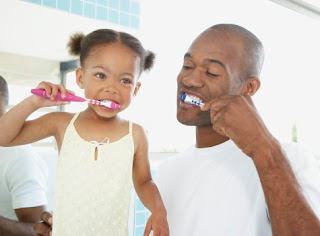Tooth enamel is the hard outer covering of your tooth that helps protect it from exposure to damaging wear and erosion. Enamel is actually the hardest substance of the human body, but it’s not indestructible!
Protecting your enamel goes a long way to helping your teeth and your smile overall, so it’s important to know what you can do every day to preserve it.
Check out our top tips below for protecting your enamel:
- Watch your pressure: when brushing your teeth, don’t apply too much pressure. This can wear away the enamel on your teeth and expose the dentin to serious damage. Light pressure will clean your teeth more than adequately and keep your enamel tough.
- Know your acids: brushing your teeth right after eating foods like citrus, tomato, or soda can be very damaging to your enamel. Instead, drink water and wait at least 30 minutes before brushing your teeth.
- Opt for soft: although soft, medium, and hard bristles are sold together in the toothbrush aisle, soft bristles are suitable for almost everybody and hard bristles should almost never be used in your mouth.
- Good technique: holding your toothbrush at a 45 degree angle to the gum line and brushing with short strokes is the best way to clean your teeth and preserve your enamel. Make sure to cover the inner, outer, and chewing surfaces of every tooth.
- Visit your Dentist in Howell, Michigan: if you have any concerns about your enamel or oral health, your dentist is a great resource whether you’re overdue or between regular visits.
Although enamel is on the surface of your teeth, it’s really the foundation for a healthy smile. Follow these tips and keep your enamel strong for years to come. If you have any questions about your enamel or oral hygiene, give your dentist in Howell, Michigan a call today for tips on everything from teeth brushing, which products to use, to common mistakes you could be making.








